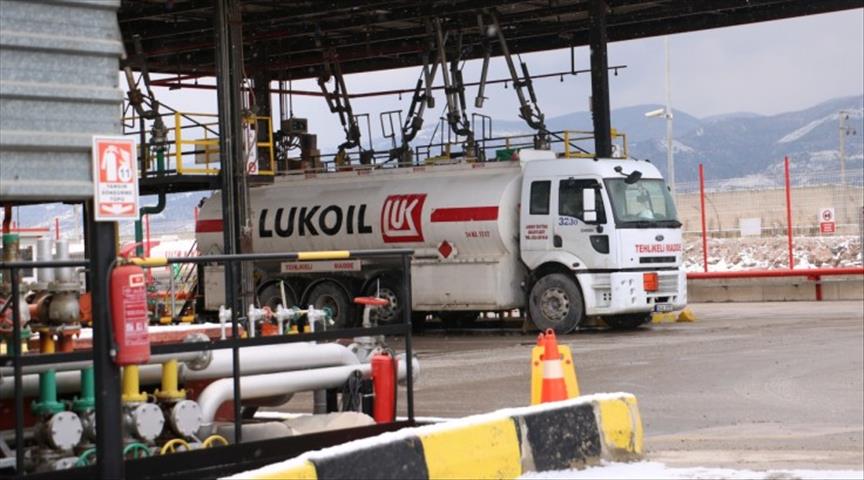Lukoil, which sees Turkey as a promising market, plans to sustain its competitive position in the region, General Director of Lukoil Eurasia Petrol, operational in Turkey, Arash Repac said.
One of the company's main targets for 2017 is to open new fuel stations with high quality services and products, Repac told Anadolu Agency
He added that despite the pressures faced in 2016, which he said was a hard year not just only for Lukoil Eurasia Petrol, but for the energy sector as a whole, the company achieved its main goals with increased sales volume, new stations and improvements in service quality.
Lukoil continues to grow in the Turkish market and in just 10 years of retail business in Turkey with well-located terminals, refineries and correct management decisions, the company has become one of the 10 largest fuel companies in Turkey, and currently ranks sixth, Repac said.
'With the number of petrol stations Lukoil Turkey has, it is ranked 5th among 80 competing companies. With regards to our wholesale business in Turkey, we are successfully working with more than 32 distributions companies in Turkey,' he said.
The director noted that the Turkish fuel market is quite different from those in Europe or Russia.
'The main sustaining factor for us is in price formation that is characterized by a certain degree of volatility driven not only by macro factors, but to a large extent by market specific ones,' he said and added, 'Thus, on a number of occasions, long-term planning has turned out to be difficult and we have had to adapt quickly to price fluctuations.'
Yet he stressed the Turkish fuel market is highly competitive and Lukoil mostly sees it as a plus, because it stimulates the company to grow and consistently increase the quality of service at the stations while maintaining high product standards.
- Price structure of Turkish fuel market
Repac said that the Turkish fuel markets' pricing structure is driven by two components - by European prices for oil products and the parity between the Turkish lira to U.S. dollar.
'Increases in world crude prices lead to the corresponding increases in prices for oil products. In addition, depreciation of the Turkish lira against the U.S. dollar also leads to uplift in pump prices. This is what has been going for the past several months,' he explained.
He said in terms of figures, the Turkish lira/USD exchange rate grew from 3.1 to 3.8 while Brent prices grew from $45 per barrel to $55 and caused increases in pump prices.
'In fact, growing pump prices negatively impact the end-user consumption and thus our profit (distributor + dealer). Under such a scenario, our need for working capital increases while our profit share stays flat,' he said.
Repac emphasized that Turkey is one of the main retail markets for the Lukoil Group, which owns eight refineries globally, three of which are located in close sea proximity to Turkey - ISAB in Sicily, Petrotel in Romania and Burgas in Bulgaria.
Through close geographical proximity, the company can deliver any type of oil product and petrochemicals to the Turkish market, he said
'Every day, eight Lukoil refineries produce more than 1.2 million barrels of oil products. We see Turkey as a promising market and we are planning to sustain our competitive position,' he said.
By Murat Temizer
Anadolu Agency
murat.temizer@aa.com.tr


